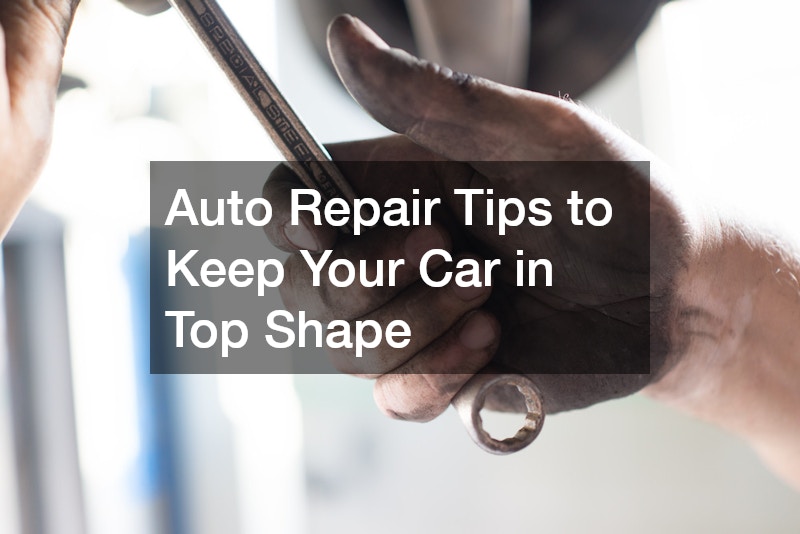
We'll explore essential auto repair tips to ensure your vehicle remains in excellent condition throughout this article. Whether you're a seasoned car owner or a beginner, these insights will help you prolong the life of your car and avoid expensive repairs.
Regular oil changes are crucial for maintaining a healthy engine. They help remove debris and prevent the build-up of sludge that can lead to engine wear.
Video Source
While the traditional recommendation was to change your oil every 3,000 miles, improvements in engine technology and oil formulations mean many vehicles can go 5,000 to 7,500 miles before needing an oil change. However, always check your owner's manual for specific recommendations for your car.
Driving conditions play a significant role in determining how often you should change your oil. If you frequently drive in high temperatures, dusty conditions, or make numerous short trips, you might need to change your oil more often. Such conditions can strain your engine, requiring more frequent maintenance to keep everything running smoothly.
Ignoring regular oil changes can lead to decreased fuel efficiency, higher emissions, and eventually, costly engine damage. Keeping a schedule and this simple maintenance task can save you hundreds, if not thousands, in repairs. Always use the recommended oil type for your car to maximize performance and longevity.
The braking system is one of a vehicle's most critical safety components. Knowing when it's time for brake maintenance can be a matter of life and death. Common signs that your brakes need attention include squeaking or grinding noises, a spongy brake pedal, or the car pulling to one side while braking. If you experience any of these symptoms, it's essential to have your brakes inspected by a professional immediately.
Regular brake inspections are vital for ensuring your safety on the road. A thorough check can identify worn parts, such as brake pads and rotors, before they fail completely. By catching these issues early, you can prevent more severe damage and ensure your vehicle stops when you need it to.
Aside from safety, maintaining your brakes can also save you money in the long run. Replacing brake pads before they completely wear out can prevent rotor damage, which is more expensive to repair or replace. Keep a regular maintenance schedule for your brakes based on your driving habits and the manufacturer's recommendations.
Tires are the only point of contact between your car and the road, making proper maintenance essential for safe driving. Regular tire maintenance includes checking air pressure, alignment, and rotation. Properly inflated tires ensure better fuel efficiency, while misaligned tires can lead to uneven wear, poor handling, and increased fuel consumption.
Rotating your tires helps distribute wear evenly across all tires, promoting a smoother ride and extending their lifespan. It's recommended to rotate your tires every 5,000 to 8,000 miles, which can be conveniently combined with your regular oil change. Alignment checks should be done annually or if you notice your car pulling to one side or uneven tire wear.
Neglecting tire maintenance can lead to significant safety risks, such as blowouts or loss of control while driving. It's important to visually inspect your tires for any damage, such as cuts or bulges, and ensure they have sufficient tread depth. Remember, keeping your tires in top condition contributes to a safer, more economical ride.
A car battery typically lasts between three to five years, but factors like weather conditions, driving habits, and electronic usage can affect its lifespan. Common signs of a failing battery include dim headlights, a slow engine crank, or the need for frequent jump-starts. Modern vehicles might also display a warning light or message on the dashboard when battery voltage is low.
To extend your battery's life, ensure the terminals are clean and free of corrosion. Regularly testing your battery's charge, especially before long road trips or during colder months, can help prevent unexpected failures. Minimizing electronic usage, like air conditioning or charging devices while the engine is off, can also enhance battery longevity.
Some batteries may provide little warning before they fail, so regular checks are crucial. If you notice your battery is over three years old or is exhibiting any signs of weakness, consider getting it tested or replaced. Ensuring your battery is in good condition not only keeps your car running smoothly but also protects its complex electronic systems.
A routine car maintenance check should cover several essential components to ensure your vehicle remains reliable and efficient. This includes inspecting fluid levels, such as coolant, brake fluid, and windshield washer fluid. Keeping fluids topped off is key to preventing engine overheating and ensuring other systems, such as brakes, function properly.
Checking and replacing engine air filters as needed is an often-overlooked aspect of maintenance. A clean air filter improves fuel efficiency and performance by ensuring an unrestricted air flow to the engine. It's typically recommended to replace the air filter every 12,000 to 15,000 miles, but this can vary based on driving conditions.
Don't forget to inspect belts and hoses for signs of wear or damage. These components are vital for keeping your engine systems running smoothly, from cooling to charging. Replacing worn belts or hoses before they fail can help avoid breakdowns and the costly repairs that follow. By conducting thorough routine checks, you maintain your car's health and avoid unexpected surprises on the road.
Regular maintenance and prompt repairs are crucial to keeping your car in top shape. By following these simple tips and paying attention to the common questions car owners have, you can enhance vehicle longevity, performance, and safety.
